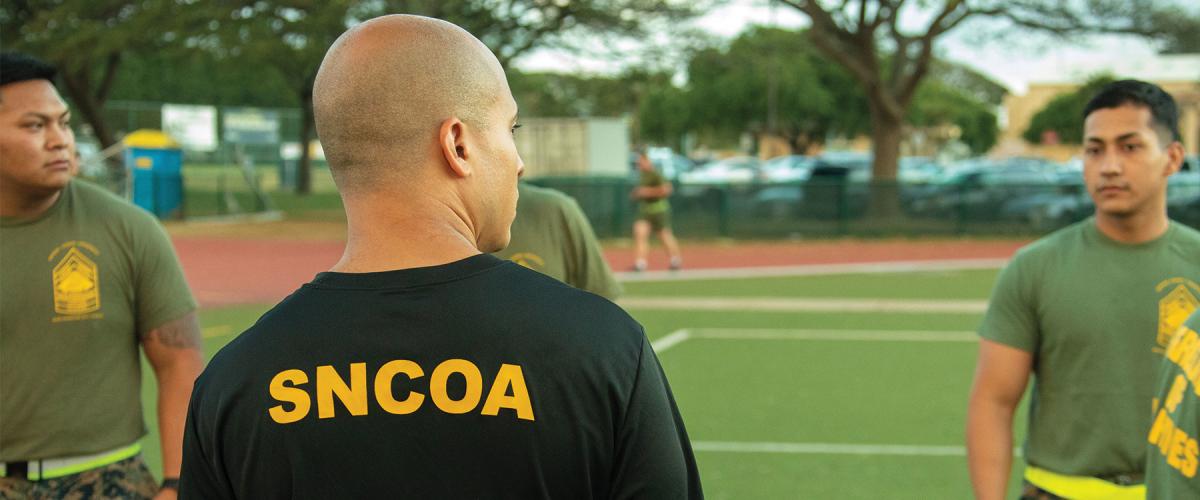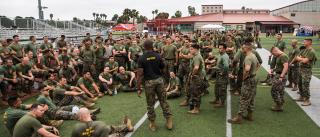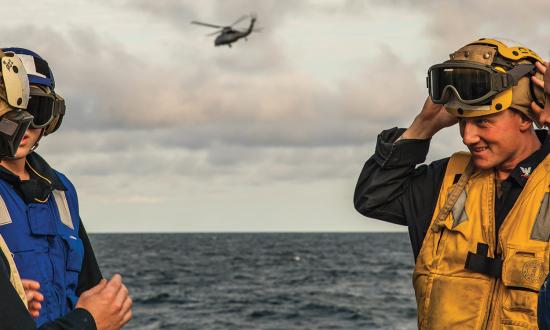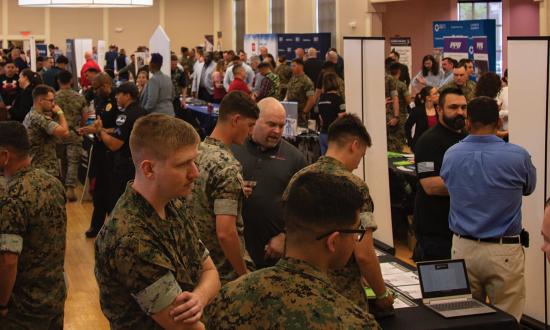The military has high standards, and service members must strive to meet or exceed those standards. Setting standards starts with the teachers and instructors in the educational academies that train noncommissioned officers (NCOs). Unfortunately, the current standards and procedures among Marine Corps staff noncommissioned officer academies (SNCOAs) leave much to be desired. To produce the best and brightest future Marines, the curriculum must be updated and the requirements to become a faculty advisor made more demanding.
NCO Education
Current SNCOA curricula set faculty advisors up for failure. The success of NCOs depends in part on the curriculum that trains them. The first step toward challenging service members and producing skilled Marines is to improve education standards. While curriculum developers are certainly knowledgeable, educational standards cannot be enhanced without faculty advisor input. As Merfat Ayesh Alsubaie notes in the Journal of Education and Practice, “With their knowledge, experiences, and competencies, teachers are central to any curriculum development effort.”1
As it stands now, faculty advisor involvement in curriculum development is almost nonexistent. Every so often, the College of Enlisted Military Education will ask the different academies their thoughts about changes to the curriculum. Doctrine change recommendations are then sent to curriculum developers, with any proposed changes taking between six and nine months to be examined. However, this examination does not guarantee any changes will be implemented. While the recommendations are helpful in theory, there are not enough personnel to process them fast enough to implement curriculum changes.
To get more curriculum developers, the Marine Corps needs to commit more funds, time, and priority to education. Just as there are incentives for drill instructors or recruiters, the same should apply to curriculum developers. Faculty advisor involvement in education is crucial. Faculty advisors know how the students learn best and what is most important for students to reflect on and think critically about, and their input must be taken seriously.
Presently, to be a Marine Corps faculty advisor takes little more than a high school education, meeting height and weight standards, and having 24 months of service obligation left on contract. On the other hand, becoming a teacher in the Army requires “a bachelor’s degree with 18 hours of education courses, meet[ing] physical standards, hav[ing] student teaching experience, and pass[ing] competency testing.”2 Why is there such a difference between the two branches? Training and educational requirements should be standard throughout the armed services. Having a higher standard for faculty advisors and teachers will challenge students and improve their learning skills. The more educated Marines are, the more likely they are to be successful on the battlefield.
Developing Passionate Leaders
Even though a person may meet the requirements to be an educator, this does not mean he or she has the personality to teach and lead. In 2021, The International Journal of Evaluation and Research in Education released an article detailing 12 personality characteristics of teachers who can strengthen the character education of their students. The Marine Corps should establish a process to test for these or similar characteristics for faculty advisors.3
However, a degree alone is not enough to ensure that a person has the right personality for teaching. Many educational courses currently offered in the Marine Corps, for example, involve leaders who merely deliver PowerPoint presentations and who have no deeper knowledge of the topic than what is on the slides. Curriculum developers give a bare-bones product with learning objectives and lesson outcomes and leave it to the instructors to make it their own. But, if an instructor only uses what is given on the lesson plans, the courses he or she teaches will be less engaging.
This is why passion is so important. In the civilian sector, successful businesses “tend to be conceived by passionate people and designed to inspire that same passion in their employees, partners, and customers.”4 The same is true in education. Successful teachers are passionate and dedicated. While this can be developed, it takes time and effort. If teachers take the time to master their craft, it will come through in their instruction. This broader knowledge will help when students ask out-of-the-box questions, as well as keep students engaged and help them retain information.
Faculty advisors need an evaluation process similar to the probationary periods offered in the civilian sector. If a faculty advisor cannot learn to be an effective educator within a prescribed time limit, then he or she needs to be sent back to the fleet. The Department of Defense implemented a similar rule in 2016, with DoD News noting, “The reason for the change in the law stems from the increasingly complex nature of much of the work performed.”5 This would push faculty advisors to a higher standard, ensuring the best quality education for future warfighters.
Looking Forward
There are significant benefits to thorough, high-quality education. When educators who are unenthusiastic or do not meet the highest standards are weeded out, only the most qualified personnel will remain—and produce the most qualified students. However, this cannot be done with a no-defect mentality—no one is perfect. Change must start with the curriculum to ensure the education provided challenges students. Better education will produce Marines who are smart, critical thinkers, and passionate about their own careers—traits the Marine Corps will need to meet the challenges of the modern era.
1. Merfat Ayesh Alsubaie, “Curriculum Development: Teacher Involvement in Curriculum Development,” Journal of Education and Practice 7, no. 9 (2016).
2. “How Can I Become a Teacher for the Army?” Learn.org.
3. Lukman Ahmad Irfan et al., “Effective Teachers’ Personality in Strengthening Character Education,” The International Journal of Evaluation and Research in Education 10, no. 2 (June 2021), 512–21.
4. David Atadan, “The Four Fundamental Leadership Traits: Having Passion,” Trellist, 18 May 2020.
5. Terri Moon Cronk, “DoD Announces New-Hire Probationary Period,” DOD News, 3 October 2016.







